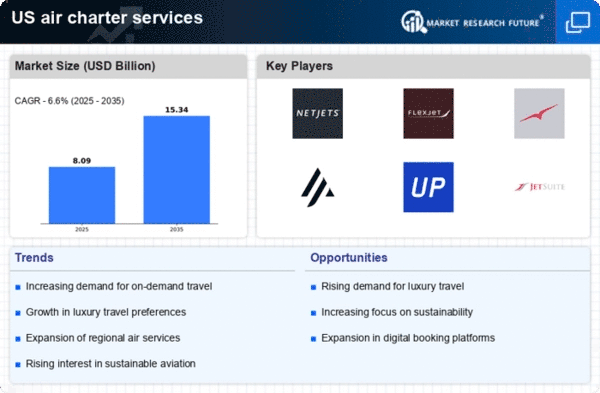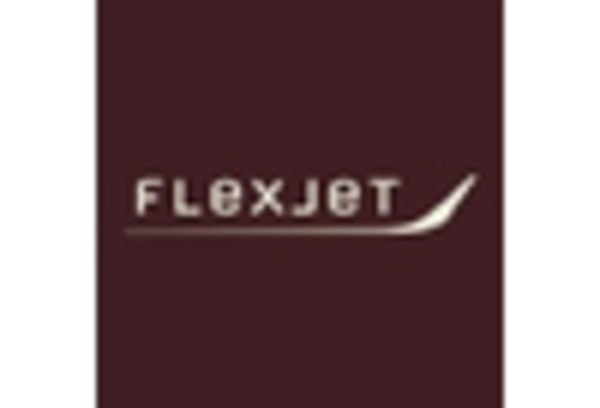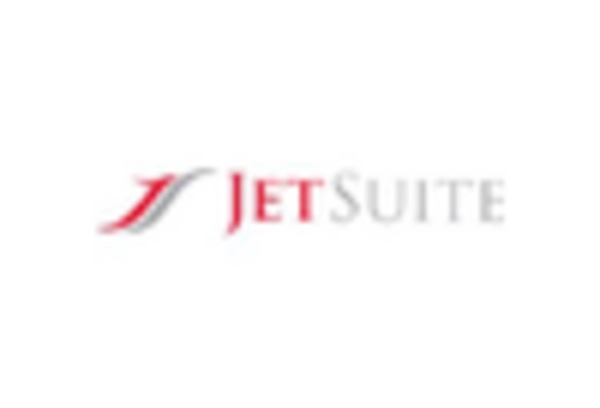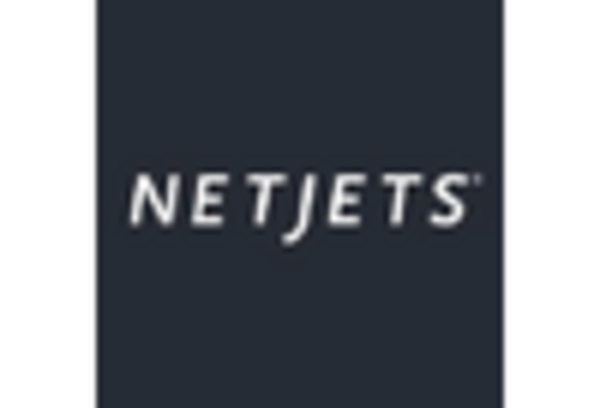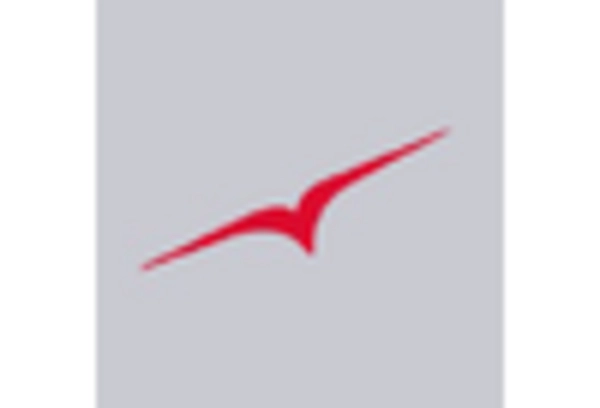Growth in Leisure Travel
the air charter-services market is benefiting from a significant rise in leisure travel, as affluent consumers seek personalized and exclusive travel experiences. The rise of experiential travel, where individuals prioritize unique and tailored experiences, has led to a growing preference for charter services. In 2025, leisure travel spending in the US is expected to surpass $800 billion, with a portion of this expenditure directed towards private charters. This trend suggests that the air charter-services market is well-positioned to capture a share of this lucrative segment, as travelers increasingly value privacy, comfort, and convenience in their travel arrangements.
Increased Business Travel
The air charter-services market is experiencing a notable surge in demand due to the increase in business travel across various sectors. Companies are increasingly opting for charter services to facilitate quick and efficient travel for executives and teams. This trend is particularly pronounced in industries such as finance, technology, and pharmaceuticals, where time is often equated with money. According to recent data, business travel spending in the US is projected to reach approximately $400 billion by 2025, indicating a robust recovery and growth potential for the air charter-services market. The flexibility and convenience offered by charter services align well with the needs of modern businesses, making this driver a critical factor in the market's expansion.
Emerging Markets and New Routes
the air charter-services market is expanding through new markets and routes. As regional economies develop and demand for air travel increases, charter services are likely to play a pivotal role in connecting underserved areas. The growth of tourism in regions such as the Southeast and Southwest US presents opportunities for charter operators to establish new routes and services. This trend indicates a potential diversification of the air charter-services market, as operators seek to capitalize on untapped demand. The ability to adapt to changing market dynamics and explore new geographic opportunities may significantly influence the future trajectory of the air charter-services market.
Regulatory Support and Incentives
The air charter-services market is likely to benefit from favorable regulatory frameworks and government incentives aimed at promoting aviation and travel sectors. Recent initiatives by the US government to streamline regulations and reduce bureaucratic hurdles for charter operators may enhance operational efficiency and attract new entrants into the market. Additionally, tax incentives for private aviation could stimulate demand for charter services, particularly among businesses looking to optimize travel costs. Such regulatory support appears to create a conducive environment for growth, potentially leading to an increase in market participants and service offerings within the air charter-services market.
Technological Integration in Customer Experience
The integration of advanced technologies in the air charter-services market is transforming customer experiences and operational efficiencies. Innovations such as mobile booking applications, real-time tracking systems, and enhanced communication tools are becoming standard in the industry. These technologies not only streamline the booking process but also provide customers with greater transparency and control over their travel plans. As consumer expectations evolve, the air charter-services market must adapt to these technological advancements to remain competitive. The ongoing investment in technology is likely to enhance service delivery and customer satisfaction, thereby driving growth in the market.


